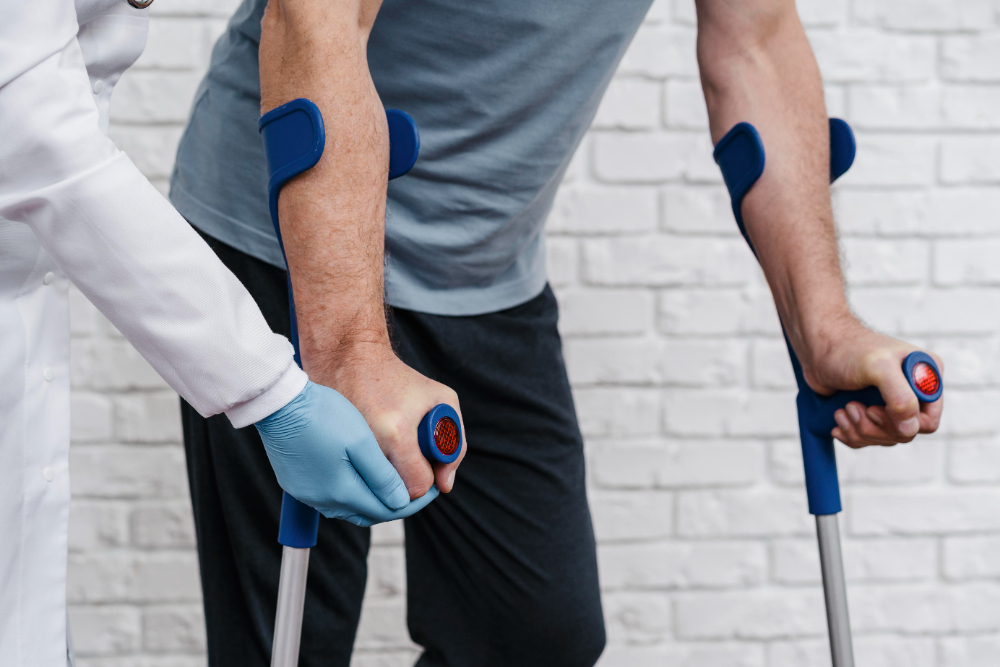The aftermath of an unexpected personal injury can be overwhelming– All of a sudden, you have to deal with mounting medical bills, you are unable to engage in tasks that were pretty easy before, and you have to deal with the pain. It’s traumatizing. However, knowing what to do after a personal injury is the first step towards a triumphant recovery. Here is what you need to know:

Seek Medical Attention Immediately
Seeking medical attention immediately after the accident is crucial for many reasons. For one, it ensures timely treatment of injuries, even those that may manifest later.
It also bolsters your claim as it shows the severity of your injuries. Given you sought medical aid immediately, insurance agents will not have an avenue to argue that injuries may have stemmed from something else. As Geoff Brown, a renowned legal expert, often emphasizes, prompt medical attention can make a significant difference in the outcome of your case.
Document the Scene of the Incident
If you are able to do so, document the scene of the incident. Be sure to capture clear, high-quality photos and videos of the damaged property, your injuries, and your surroundings.
In addition to photos and videos, taking detailed notes about the scene is important. Write down everything you remember, including the time, date, and location of the incident, as well as any contributing factors like weather conditions, road conditions, or nearby traffic signs. If there were any witnesses, try to get their contact information and ask for their account of the event. The more information you gather, the stronger your case will be when it comes time to file a claim or pursue legal action.
Report the Incident
Next, you should report the incident to the relevant authorities. Be sure to fill in the incident report accurately. It is a crucial piece of evidence that is helpful during the claims process.
On top of that, all the evidence and documents on the case must be collected and kept. This includes all the medical records such as receipts, doctors’ appointments, prescriptions, witness contacts, and other documents and evidence that may help support your claim.
Notify Your Insurance Company
You should notify the insurance company immediately. But how long is it immediately? The general rule is to notify your insurer within 72 hours post-injury.
However, if you were unconscious or unable to communicate due to your injury, the countdown starts immediately, and you are in a position to notify the insurance company.
Consult Your Attorney
Most people overlook the critical step of following advice and guidance from a personal injury attorney. You should contact an attorney immediately after the incident.
Depending on your specific case, they will advise you on the way forward and start building a case as you focus on healing and recovery.
A personal injury attorney will also protect you from the underhanded techniques most insurance agents employ to undermine claimants’ suits. They will accurately determine the worth of your case and protect you from undercompensation.
Know the Statute of Limitations
The statute of limitations is the legal time frame within which all personal injury cases may be filed. For most states, including Pennsylvania, it is two years. However, this period can be extended depending on specific circumstances, such as if the injury was discovered after the incident that caused it.
Consider Mediation or Negotiation
Alternative dispute resolution methods, such as mediation and negotiation, are strategic and affordable. You no longer have to deal with high legal fees. Even better, the case can expedite the case quickly, contrary to formal litigation, which can take a long time to conclude.
Conclusion
In conclusion, while dealing with a personal injury can be stressful and overwhelming, following the right steps from the beginning can make all the difference. By seeking medical attention, documenting everything, reporting the incident, notifying your insurance, and consulting with an attorney, you set yourself up for a stronger case. Remember, each step you take is an important part of your journey toward recovery and getting the compensation you deserve. Stay organized, keep track of your documents, and don’t hesitate to seek professional help to guide you through the process.










